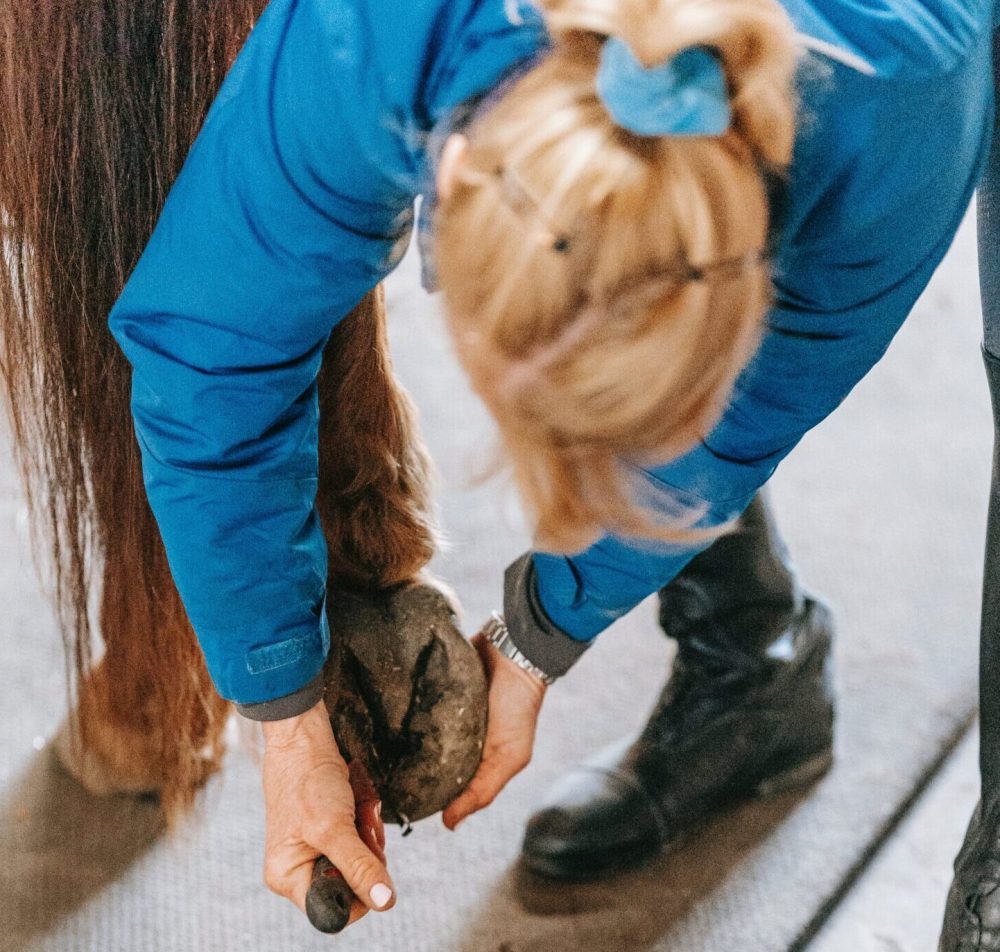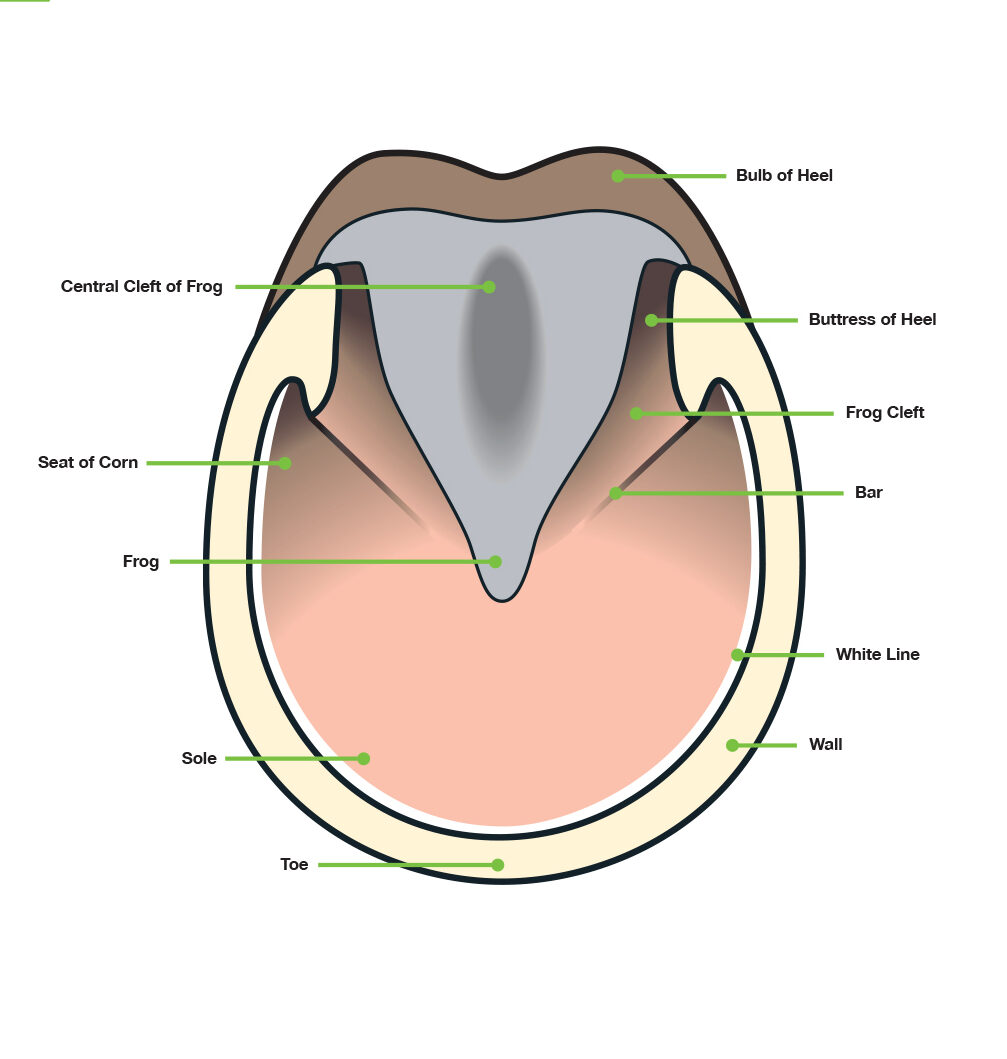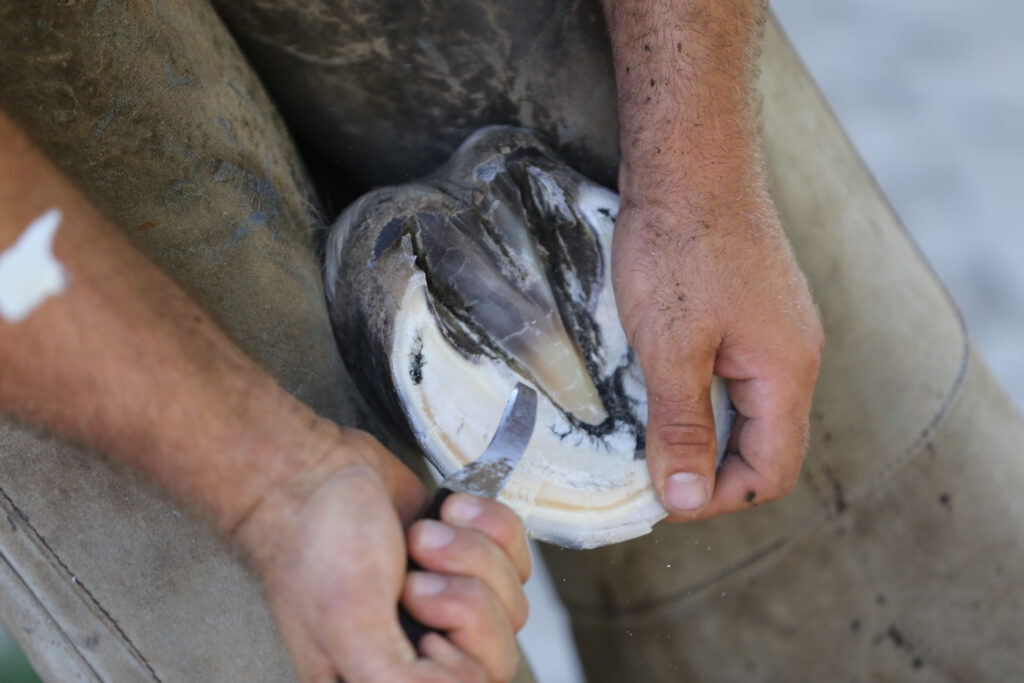Thrush Fact Sheet
What is Thrush?
Thrush is a bacterial or fungal infection of the hoof caused by Anaerobic Bacteria such as Keratonolytic (keratin dissolving), Fusobacterium Necrophorum or Fungus such as Spherophorus Neaophorus.

How Do You Know if Your Horse has Thrush?
Well, the most obvious signs will a foul-smelling black discharge in one or more clefts of the frog, the frog will also be softer to the touch and there will be excess frog tissue growth. Your horse may also present with mild to severe lameness or permanent lameness in really severe cases of thrush.
If left untreated thrush can cause severe infection that can spread to the deeper hoof structures, such as the digital cushion, hoof wall and the bulb of the heel. This will lead to disintegration of the horn and your horse may be in pain when this area is palpated.
Why Do Horses Develop Thrush?
In our modern world horses are stabled for long periods of time. The soiled and wet bedding, creates the perfect environment for the anaerobic thrush causing bacteria and fungus to thrive.
Thrush can also be caused by poor hoof care. If horses’ hooves are not picked out daily, particularly stabled horses then the compacted muck doesn’t allow the hoof to breathe and this then creates the right conditions for anaerobic bacteria to thrive.
Horses that are turned out in wet, muddy pasture for a long time, can also develop thrush, as the hoof wall will soften. Or if your horses live out then their hooves are constantly wet don’t have the chance to dry out.
Infrequent farriery and letting the hoof become overgrown, so that the frog and bars almost meet. Will increase your horses’ chances of getting thrush.
Poor foot conformation also plays its part in horses developing thrush. Horse with deep frog clefts and poor hoof conformation – such as horses with long narrow feet, that are prone to contracted heels are more likely to develop thrush. This is because contracted heels, make the clefts narrower and therefore less able to breathe! Again, creating the right conditions for anaerobic bacteria.
Horses with poor immune systems are more likely to contract thrush as the hoof quality will be compromised.
How Do We Treat Thrush?
For horses that have mild thrush where their hooves are slightly smelly with only a small amount of black discharge, pick out their hooves twice a day.
If your horse has medium levels of thrush, where their hooves are very smelly with lots of black discharge and they have excess growth of their frog tissue and the frog has softened.
Call your farrier to come and remove all dead and damaged tissue from around the frog to expose healthy tissue.
Horses with severe levels of thrush in their hooves will be very smelly with thick black foul-smelling discharge. When you pick out the grooves and clefts of your horses’ hooves, the hoof pick will go in further than it should and your horse will exhibit pain when the frog and heels are palpated. They may also be lame, with swelling of their lower leg.
At this stage seek veterinary advice.
It is really important to know, that Thrush will not clear up on its own and if left untreated it will only get worse!
Use a recognized treatment recommended by your vet or farrier.


How Can we Prevent Thrush?
Firstly, look at and alter the environmental conditions, a change in bedding for example or more frequent mucking out. Then during the winter for those that can’t be turned out, give your horses as many opportunities to move outside their stable as possible, whether it be in a turn out pen, walked in hand, breaking the riding into two sessions a day, or going on a horse walker. Pick your horses feet out daily and spray once or twice a week to prevent thrush.
If your horse lives out, is there somewhere where they could regularly come into, or stand, to allow their hooves to dry out?
This blog has been fact checked by an independent vet!
Anybody interested in our yard disinfection service, get in touch to discuss your requirements.
We are also available for help and advice at any time, particularly if you have an outbreak of any sort. We can help with quarantine procedures and are also available to do Bio-security plans so that in the event of an outbreak you have a plan in place to deal with the situation.
